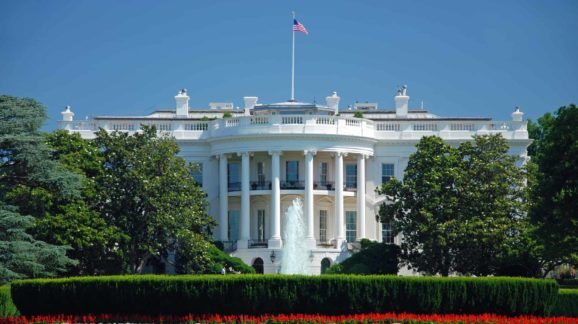Swamp things: Why DOGE moving Beltway agencies to states isn’t deregulation

Photo Credit: Getty
The Department of Government Efficiency (DOGE), expected to be established by president-elect Trump and led by Elon Musk and Vivek Ramaswamy, aims to slash regulations, cut waste, and dismantle unnecessary federal agencies by July 4, 2026.
The term “Department” is a flex, since it’s actually an external advisory commission, not really a federal department.
A new Cabinet position? Let’s not and say we did
That said, Trump proclaimed during his October 31 rally in Albuquerque, New Mexico, “I will create a new Cabinet position for a senior member of my administration who will be tasked exclusively with doing everything in the federal government’s power to reduce the cost of living.”
Meanwhile, Ramaswamy has removed himself from consideration for appointment to JD Vance’s Ohio seat, so he’d conceivably be free for such a role.
But let’s end such speculation, and simply state for the record now that the greatest gift to any future post-Trump/Vance progressive administration would be a brand-new Cabinet department with vague but sweeping powers. In the past year alone we’ve seen how the Biden administration loves monkeying around with price controls, wealth transfers, and economic interventions to give people what he calls “breathing room.”
Relocating Beltway agencies? Let’s not do that either
Of immediate concern is the fact that the DOGE project has adopted a longstanding Republican proposal to relocate federal agencies outside Washington, DC, ostensibly as a form of decentralization, such as moving the Department of Energy to Texas.
Spreading swamp vegetation to the Heartland will permanently undermine the deregulatory legacy Trump seeks to restore. No future legislator, no matter the party, will agree to shutting down the useless satellite agency in his district; that should be obvious.
This puzzling idea of relocating agencies came up again just this past weekend, when Mr. Ramaswamy was interviewed about DOGE on Fox News.
Ramaswamy reaffirmed Trump’s intention that certain departments (like Education) which “should not exist” ought to be dismantled and their functions returned to the states. Ramaswamy also promised other “mass reductions,” in part driven by moves like simply requiring that employees show up every day; since many now do not, presumably a large percentage would elect to resign.
But all this is tainted by misplaced enthusiasm for moving agencies “closer to the people.”
Moving agencies isn’t “draining the swamp”
Relocating agencies fundamentally legitimizes the wrongheaded administrative approach to governance, thereby ignoring the core problem of progressive rule. Relocation also escalates already intense state dependency on federal largesse, and simply spreads regulatory reach. The Environmental Protection Agency, one of the biggest targets of reform, already has ten satellite offices, a lesson for those imagining geographic relocation curtails overreach somehow.
Abolition, not redistribution
Instead of relocating agencies, DOGE and Trump should emphasize abolishing unnecessary departments and agencies entirely. Along with the aforementioned Department of Education, Republicans used to promise to eliminate the likes of the Transportation Security Administration and the Department of Energy. That is the path. On the spending side, DOGE should end trillions in subsidies, loan guarantees, grants-in-aid, and funded mandates. On the regulatory side, it should emphasize abolishing agencies, programs, rules, and unfunded mandates—and prevent agencies’ laundering of regulation through contracting, procurement, and abuse of sub-regulatory guidance documents.
Already (just for example) federal grants-in-aid to states top $750 billion; those funds should remain with the states instead of making a circuit through Washington, with corresponding reductions in federal budgets in fulfilment of DOGE goals. Such steps realign Washington with constitutional limits and empower states with actual authority rather than this new misguided delegation of even more misguided federal functions.
Federal work should not be a jobs program
Relocation, according to some advocates, promises economic benefits to host communities. But these jobs create dependence on federal employment rather than true economic growth. Worse, these new federal government satellites will attract from across the nation the same sort of taxpayer-subsidized, McMansion-residing bureaucratic elite that populates DC suburbs, entrenching “Swamp 2.0.” rather than hiring locals. And a future DOGE couldn’t get rid of them.
Cut the roots, not the branches
DOGE’s focusing on “efficiency” while maintaining agencies’ unconstitutional or simply inappropriate tasks won’t be a solution. Laser focus on dismantling agencies, eliminating grants, subsidies, regulations, and restoring state and local autonomy is key. Audits and inventories of useless programs are essential, as the Government Accountability Office has recently shown we don’t even know how many federal programs exist.
Relocation will merely replicate the swamp’s problems on a broader scale. Trump’s legacy should be defined by dismantling unnecessary bureaucracy—not fertilizing its spread. As Argentinian leader Javier Milei says, “Afuera!”—throw it out.
For more see:
- “A Republican Proposal to Feed the Country to the Swamp,” Wall Street Journal, 2019
- “Mr. Trump: DOGE Notwithstanding, Don’t Let GOP Spread Washington Swamp Mire to the Heartland,” Forbes, 2024